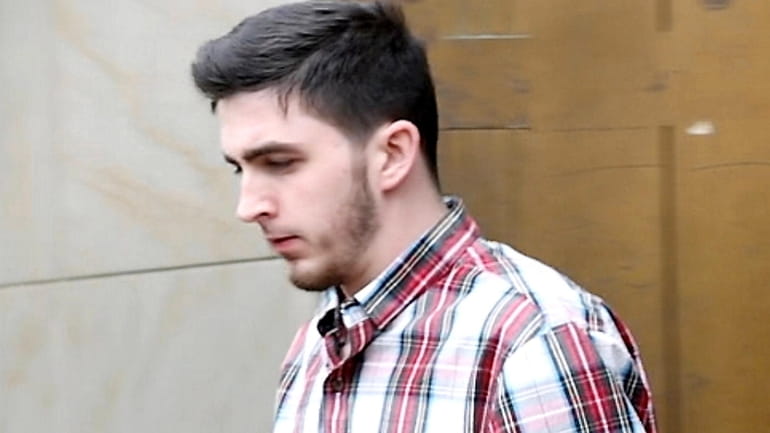New York State needs better laws to stop sexual deepfakes

Patrick Carey leaves the Nassau County Courthouse after he was sentenced on Tuesday, April 18, 2023 in Mineola. Credit: Howard Schnapp
This guest essay reflects the views of Nassau County District Attorney Anne T. Donnelly.
A year ago this month, my office announced the sentencing of Patrick Carey, a 22-year-old man who created sexual “deepfakes” — digitally altered sexual images — of more than a dozen women he knew from high school using widely available mobile editing software.
Carey twisted innocuous Instagram and Facebook photos of the women taken when they were in high school — at cheerleading practice, at the beach, just living their lives — into sexually explicit material. He wielded his friendship as a weapon and attempted to damage their reputations.
Horrifyingly, Carey’s conduct would now, one year later, be considered rudimentary. Emerging technologies like generative artificial intelligence have made the creation of deepfakes as easy as clicking a button, making them even more dangerous.
I have been a criminal prosecutor for more than 30 years and began working on child sex abuse cases during the rise of the internet. I watched as predators moved from physical photographs to digital files and internet uploads. As a mom to two young daughters and a son, I was terrified.
T
Protecting children has always been a driving force behind my work. But today, our laws are leaving kids vulnerable. New York State has no criminal law to adequately protect children from sexual deepfakes. This must change.
My bill, the Digital Alternations Protection Act or “DAPA,” sponsored by Assemb. Gina Sillitti and State Sen. Nathalia Fernandez, would establish felony offenses for anyone who creates, distributes, or publicizes sexual deepfakes of anyone younger than 17.
Importantly, DAPA’s statutes would be bail-eligible and require anyone convicted of creating or disseminating sexual deepfakes of children to register as a sex offender.
Victims of sexual deepfakes suffer devastating and long-lasting damage to their reputations, especially in an age when the internet always seems to remember. They often feel violated and humiliated by the nonconsensual creation of these images and videos.
These digital alterations have become so realistic that victims worry that their mere existence could impact career prospects and personal relationships. This is profoundly difficult for young adults just starting out. It is even worse for teens and children, who are forced to endure decades of undeserved damage and shame just for living in an interconnected world.
DAPA would give us the tools to fight back and prevent these horrible what-ifs from becoming reality. It holds individuals accountable for using technology to prey on children and ensures those convicted will be monitored to limit the likelihood they will reoffend.
The sad reality is that no one is safe. A search for “deepfakes” will find dozens of news articles recounting incidents across our country, even reaching celebrities like Taylor Swift.
Victims file thousands of complaints with companies like Google pleading to have images and videos removed from the web, while websites devoted to the creation and spread of sexual deepfakes expand every day. This repulsive conduct is reaching pandemic levels, and as technology blurs the lines between fantasy and reality, the problem will only worsen.
But there is cause for hope.
States and municipalities across the country, like Washington State and Maryland, are recognizing the urgent need for civil and criminal laws to curb this invasive and exploitive conduct. New York’s amended revenge porn criminal statute now contains protections from sexual deepfakes targeted toward adults.
While this is a first step in protecting New Yorkers, we cannot leave exposed our children, who remain among the most vulnerable to internet exploitation.
DAPA gives New York’s children the protection they deserve.
THIS GUEST ESSAY reflects the views of Nassau County District Attorney Anne T. Donnelly.
